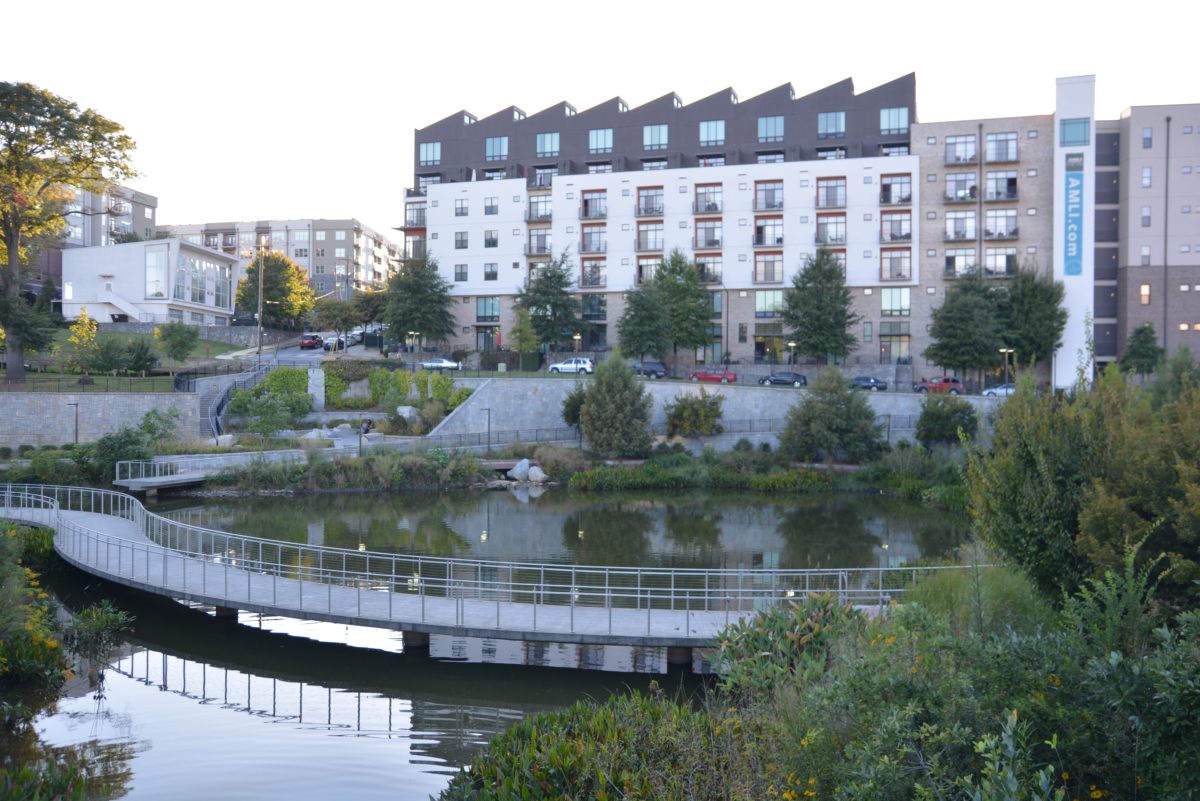BeltLine Housing Prices Rose Faster Than Those Elsewhere In Atlanta

Ali Guillory / WABE
Housing prices near the BeltLine are rising faster than in the rest of Atlanta, according to a new study.
That probably comes as little surprise to anyone familiar with the popular path and the businesses and homes that spring up around it. But now, Dan Immergluck, a professor at the School of City and Regional planning at Georgia Tech, has quantified it.
“Within a half mile of the BeltLine depending on which part, you’re roughly talking appreciation of 50 to 60 percent from 2012 to 2015, versus about 30 percent in the rest of the city,” he said.
The difference is most marked in southwest Atlanta, he found.
That can be great for homeowners who are looking to sell. But for renters and for homeowners who want to stick around – especially those with low incomes – it can be bad news.
“There’s nothing wrong with property appreciation when it’s modest and steady,” Immergluck said. “It’s when it gets very fast that it tends to have displacement effects and really causes people’s housing costs to go up much faster than the rest of the economy.”
The Atlanta BeltLine Inc. fell behind on building affordable housing – and everything else – during the Great Recession, and it’s still playing catch up, said ABI housing policy and development director James Alexander. It is investing more in affordable housing now, he said, with a nearly $12 million bond issued in 2016 for an affordable housing trust fund and $2 million set aside for affordable housing in the next few years’ budgets.
“I think the fact that we’re investing over $18 million over the next three years really speaks to us really putting our money where our mouth is,” Alexander said.
The ABI has a goal to create 5,600 units of affordable housing. Alexander said in terms of the city’s needs overall, that probably doesn’t go far enough.
“If you look at the scale of the need over the next 20 years, [it] would only be a part of what would need to be produced to make sure that every family and household has an affordable housing living opportunity along the Atlanta BeltLine,” he said. “The scale of the need, I think with or without the Atlanta BeltLine being constructed, is substantial. “And I think that’s the case in every large, growing American city where families increasingly want to live in neighborhoods near the center of town, near services.”
It’s an issue the Atlanta BeltLine Partnership, a nonprofit that raises funds and advocates for ABI, plans to get more vocal about, said Rob Brawner, executive director of the Partnership.
“It’s critical for the economic health of the city that we’re able to have and preserve a housing stock where residents of all income levels can live,” he said. “Especially around the BeltLine and around transit corridors so people can get to and from employment.”
Some of the ideas Brawner wants the city to pursue are similar to Immergluck’s: create an affordable housing trust fund beyond what the BeltLine has already done, and institute inclusionary zoning rules requiring some affordable units in new developments.
9(MDAxODM0MDY4MDEyMTY4NDA3MzI3YjkzMw004))








